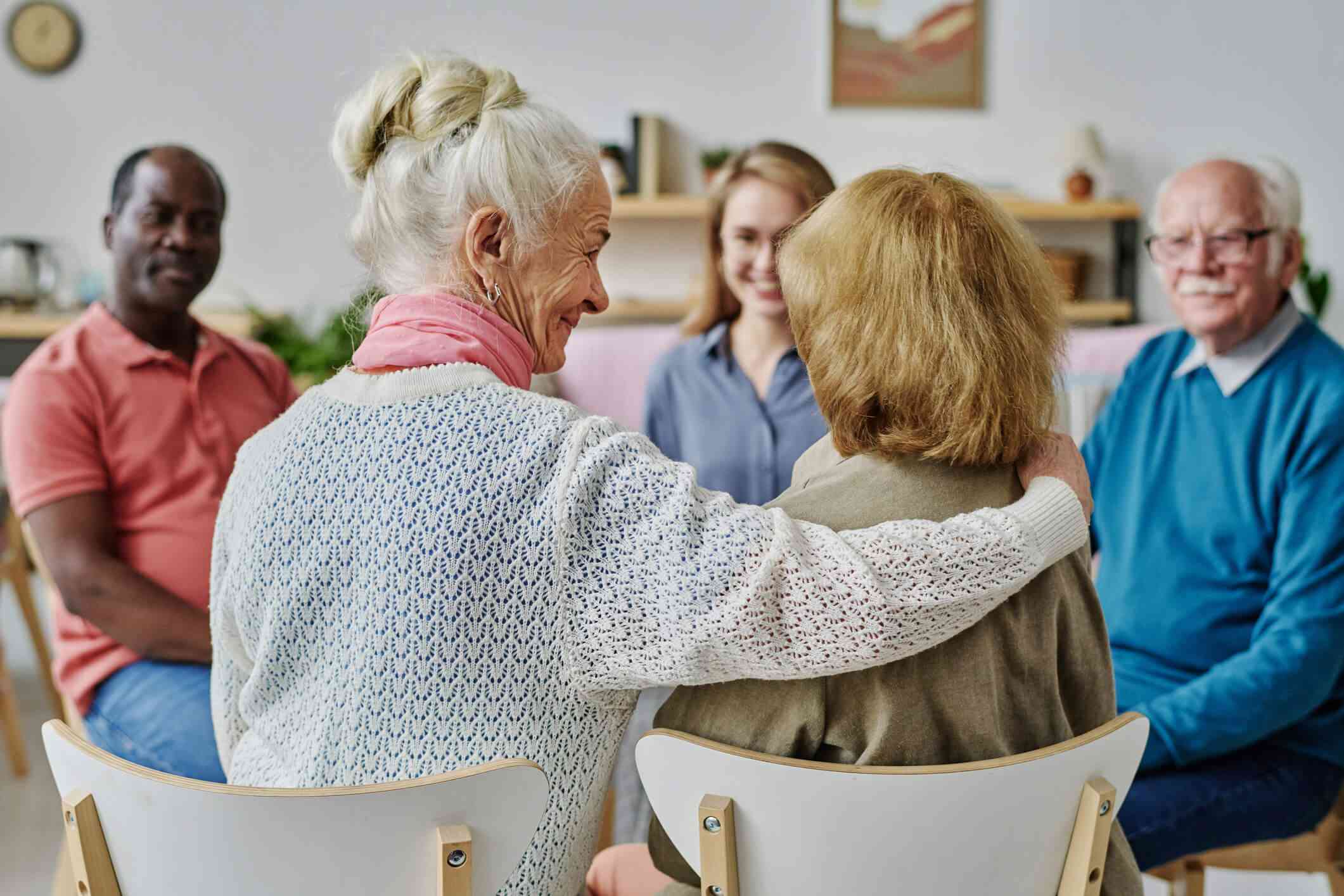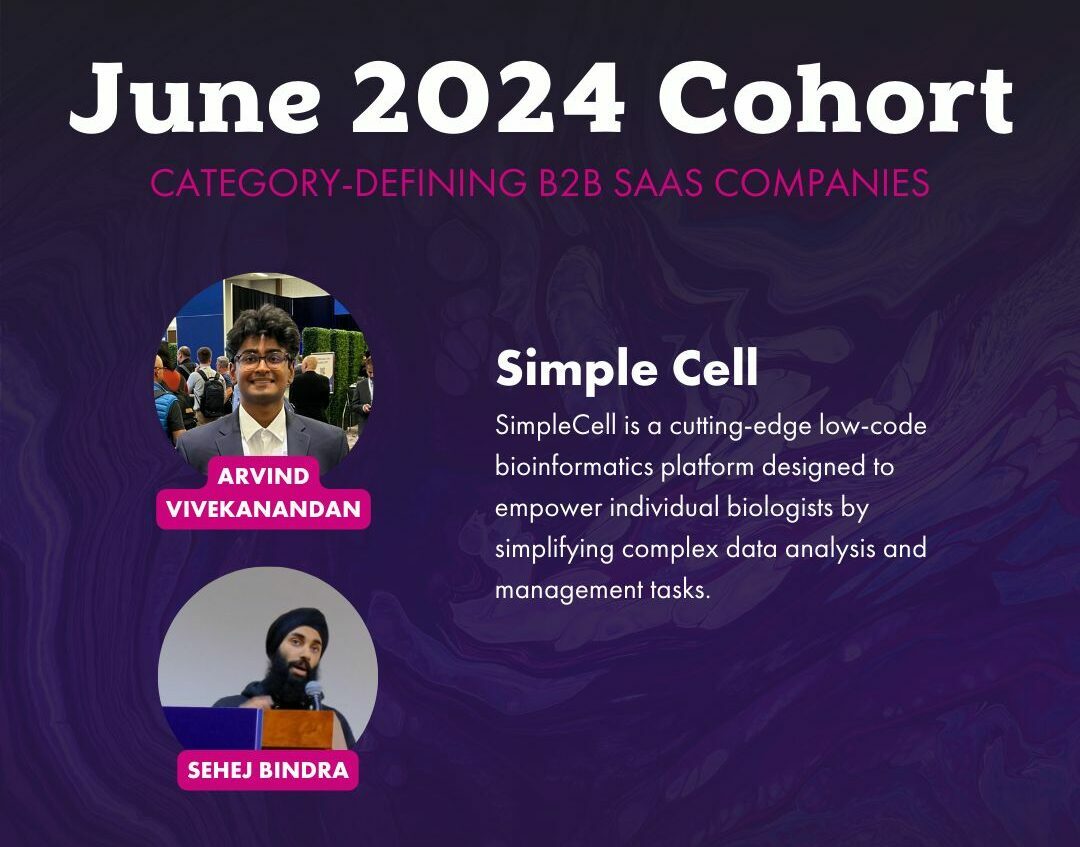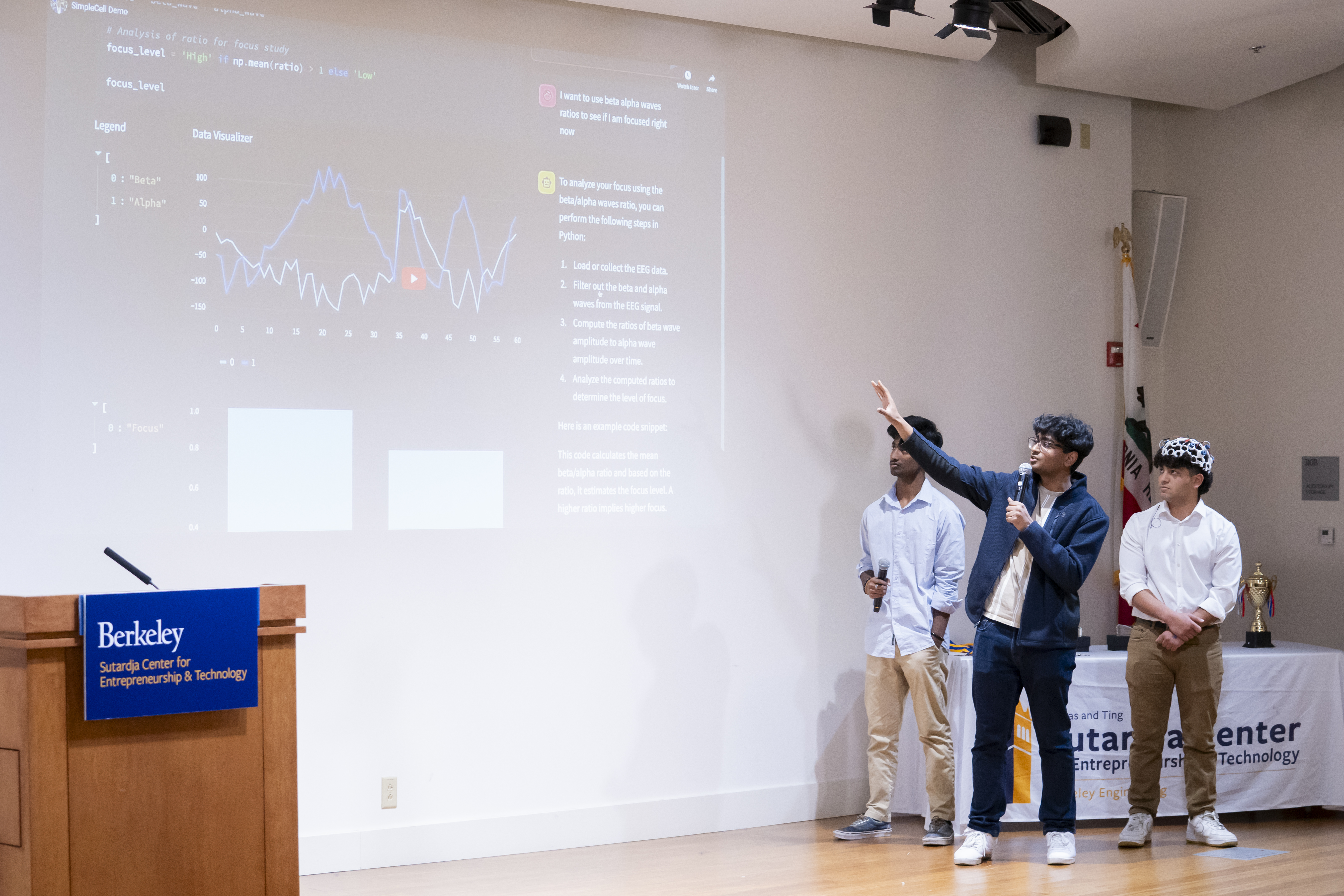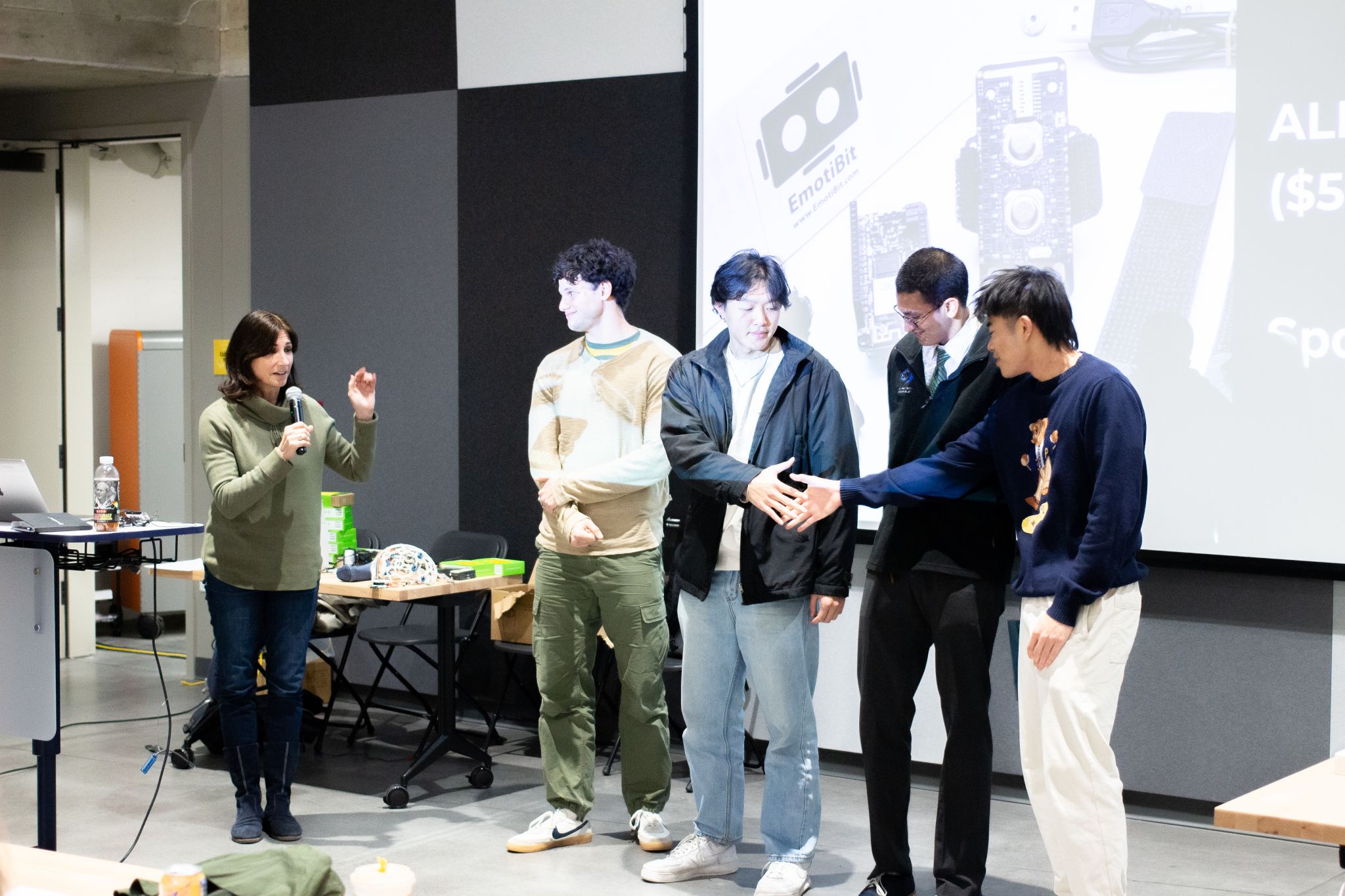Neurotech Course Project Makes Appearance at California Neurotech Conference
By: Niki Borghei
The second annual California Neurotechnology Conference took place in late April, marking another successful gathering of neurotechnology enthusiasts, professionals, and academics from across the West Coast. Hosted jointly by UC Davis, UCLA, UC Berkeley, UC San Diego, UC Santa Cruz, and USC, this full-day event provided a platform for collaboration, innovation, and knowledge exchange in the rapidly evolving field of neurotechnology.
The conference kicked off with inspiring talks from two neurotechnology experts. Nathan Copeland, a brain-computer interface (BCI) expert and neurotech consultant, shared his remarkable journey as someone who holds the record for the longest time living with a BCI implant. Dr. David Eagleman, a Stanford neuroscience professor and CEO of Neosensory, highlighted the groundbreaking work being done to restore and expand human senses through innovative technologies.
Among the impressive list of participants was a group of students from the Transforming Brain Health with Neurotech course at UC Berkeley. These students are also part of the student organization Neurotech@Berkeley.
Their project uses voice biomarkers, or various characteristics of the voice like intonation, pitch, or number of pauses to assess the probability of having dementia. They use machine learning models to detect early signs of cognitive decline in addition to tracking various cognitive features like memory, stress, or emotion. Their startup features an app that allows users to talk to a friendly AI agent, which then receives information on the bioinformatic data gathered from their voice.
Amelia Iga Lubelska, a rising senior who studies molecular & cell biology (with a neurobiology specialization) and data science, is one of the students on this team.
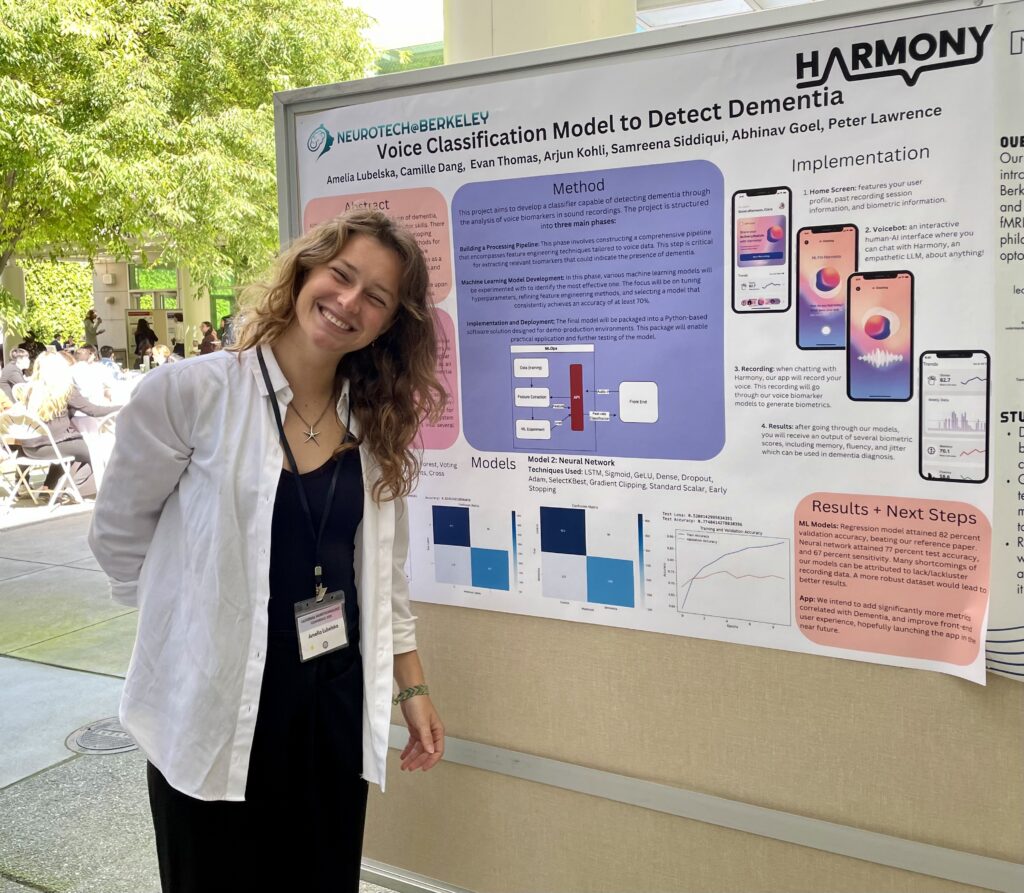
“The Neurotech Collider Lab sponsored course was immensely helpful in jumpstarting our startup idea, from encouraging us to validate the product and conduct user interviews to providing us with amazing advisors that have given invaluable advice along the way,” she said. “The course is programmed in such a way that the deadlines make it very easy to stay focused and propel the idea at a good pace. The network we established after the course put us in a very good place to continue the startup outside of the class.”
Her experience at the California Neurotech Conference also taught her that any research paper or project can have commercial potential, transforming into a startup that changes lives for the better.
“I realized that even though we were the only research-turned-startup at the conference, there is a lot of potential in the area of neurotechnology to develop scalable solutions to the research that is actively being conducted at universities. I think the future is very inspiring especially with all the amazing research presented at the conference.”

